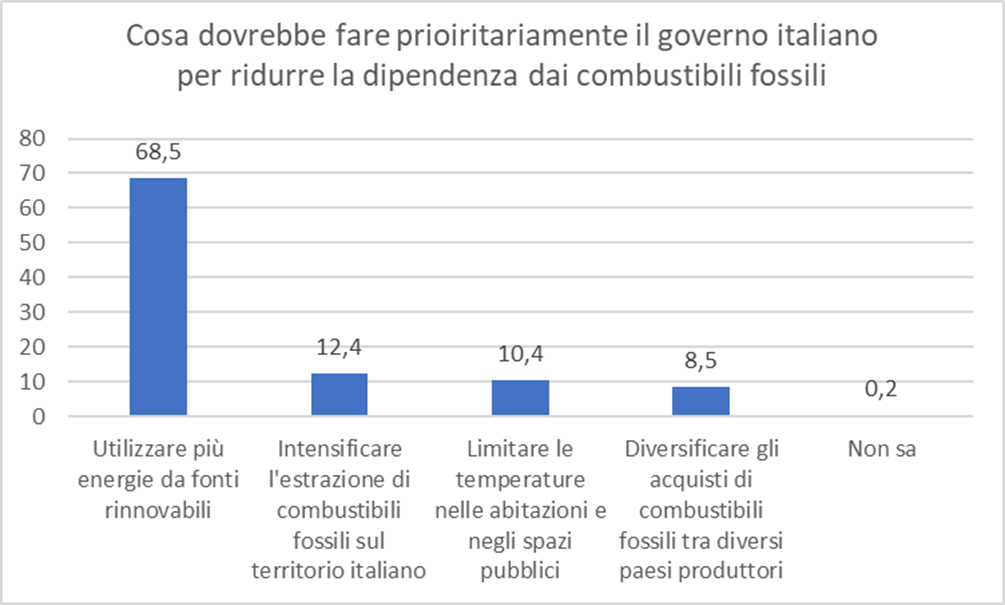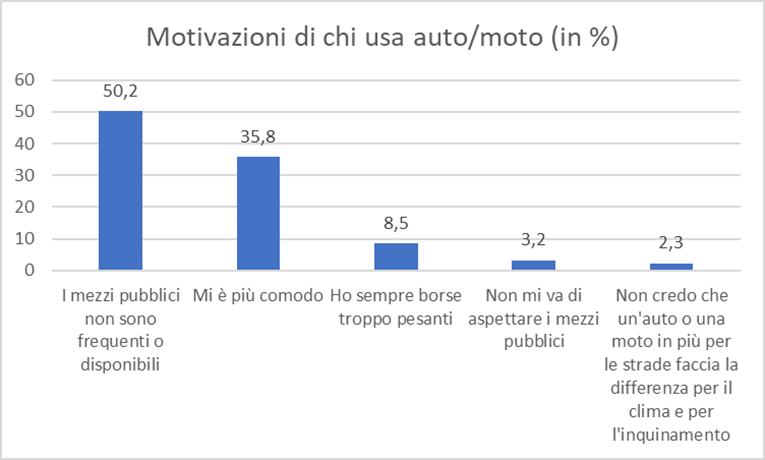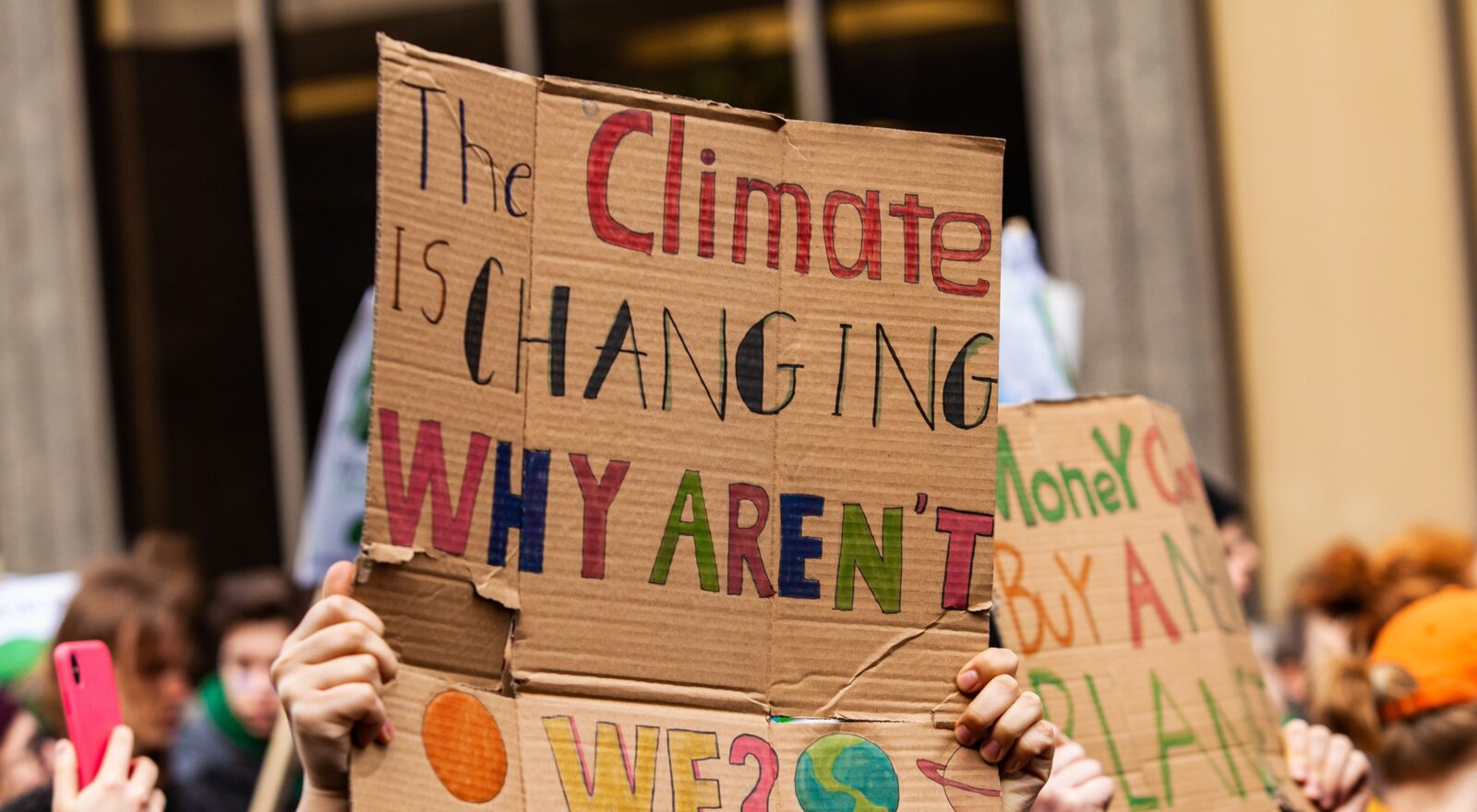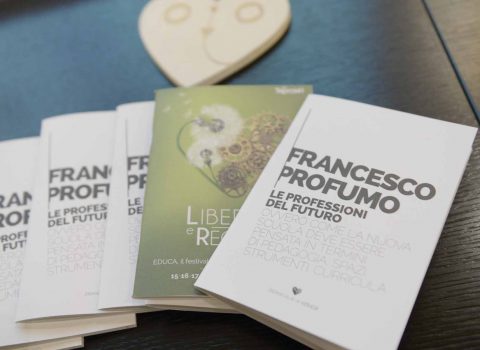
A map of science in society: the Italian public opinion on climate, environment and energy
Im this first of three in-depth analysis articles dedicated to the latest edition of the "Science, Technology and Society" yearbook, a survey conducted since 2003 by Observa Science in Society, we present the positions of Italians on three sustainability-related "hot topics"
Climate change, energy production/usage and sustainable mobility are now leitmotifs of the national debate on sustainability. The war in Ukraine, rising gas prices, the manifest effects of global warming and other similar phenomena elicit conflicting opinions, reactions and behaviors. Observa Science decided to devote its usual survey chapter on Italian public opinion on scientific topics to these issues.
The findings, the result of a questionnaire administered to about 1,000 people (n = 1015), are sometimes expected, sometimes surprising, sometimes bizarre; they generally reflect an increase in awareness on these issues, but a low propensity for change in behavior.
Climate Change
In relation to environmental issues, the issue of greatest concern is climate change (28.5%), followed by drought (21.4%) and waste disposal (21.1%). In general, the alarm siren of change is heard loud and clear: as of today, 89% of Italians believe that the planet’s climate is getting warmer; the remaining 11% are equally divided between those who do not know what to answer and those who are convinced that climate is not changing. In terms of population segmentation, it is interesting to note that skeptics are over-represented among the over-60s and under-represented among the under-30s.

Another interesting finding is related to the reasons that lie behind the two opinions: many base their claims on their personal experience, both among skeptics (57%) and those who believe in change (55%). Only 37.5% of those who believe global temperature rise to be true do so because of confidence in scientific studies, with the percentage rising among young people and college graduates.
As for perceived obstacles to action for change in the direction of sustainability, 60.7% of Italians believe that the main stumbling block is too many economic interests involved, followed by 20% who blame the laziness of people’s habits, and 18.5% who consider the inadequacy of politicians to be the main cause.
The trust accorded to the actors who should deal with the problem sees scientists in the lead (68%). This figure grows from the 2019 Observa data (63.8%), perhaps as a result of the leading role occupied during the pandemic. In these last two statistics, some distrust in the Italian political class can be seen, both in terms of responsibility for climate change and credit for decision-making.

Energy issues
Energy issues have also had wide resonance: in the wake of the Russian-Ukrainian conflict, our dependence on Russia to meet our energy needs has emerged, especially with regard to fossil fuels: gas, oil and electricity prices have soared, there has been talk of diversifying energy supply, focusing on renewables…
But how would Italians deal with the challenge? For 68.5% of respondents, the most important thing is to strengthen renewable energy production systems. Only 12.4%would instead focus on intensifying fossil fuel extraction.

Regarding the “quantitative” importance of renewables- i.e., how much they can replace other sources of energy – both cautious and confident optimism seem to be widespread, up from 2011: the idea that renewables could potentially cover all of our energy needs, or “only” a good portion, is supported by 53.1% and 40.6% of respondents, respectively.
Another particularly hot topic is nuclear power: it is interesting to look at the historical unfolding of opinions on the issue. For the 2022 data, the situation seems to have changed drastically since 2011, the year of the Fukushima nuclear disaster. As of today, as many as 40.9% of Italians say they support investment in nuclear power, compared to 37.7% who don’t and 21.4% undecided, going back to pre-Fukushima numbers.
Sustainable mobility
Mobility is perhaps an even more interesting topic as it involves active citizen participation for environmental sustainability. Indeed, on this issue it is possible to investigate the possible inconsistency between the opinions and behaviors of the respondents. Although – as we have already seen – the perception of climate change is widespread, mobility behaviors do not seem consistent with the desire to reduce pollution and traffic. More than half of Italians get around by car and 5% by motorcycle; only the remaining 40% use bicycles or public transport.
It is important, however, to make a distinction about the reasons for not using greener methods of transportation. More than half of respondents (50.2%) do not use public transportation because it is not frequent or available, while just over 1 in 3 (35.8%) use the car for the sake of convenience.
As for cars, about 7 in 10 Italians would consider buying an electric car if they were to purchase a new car; such a percentage would say they very much or fairly agree with the idea that the state should make funds available to incentivize the purchase of this type of car.

In conclusion…
What emerges is a well-established awareness of climate change, coupled with a general trust in science and its institutions (to the contrary of what a certain “noisy minority” occasionally leads us to believe…), but also a whole range of contradictory behavior. In developing public policies to improve the situation, it will be necessary to work on the habits that can be changed: incentivizing the purchase of electric cars (ensuring proper battery disposal), making public transport systems more efficient, building more widespread bicycle trail networks…



